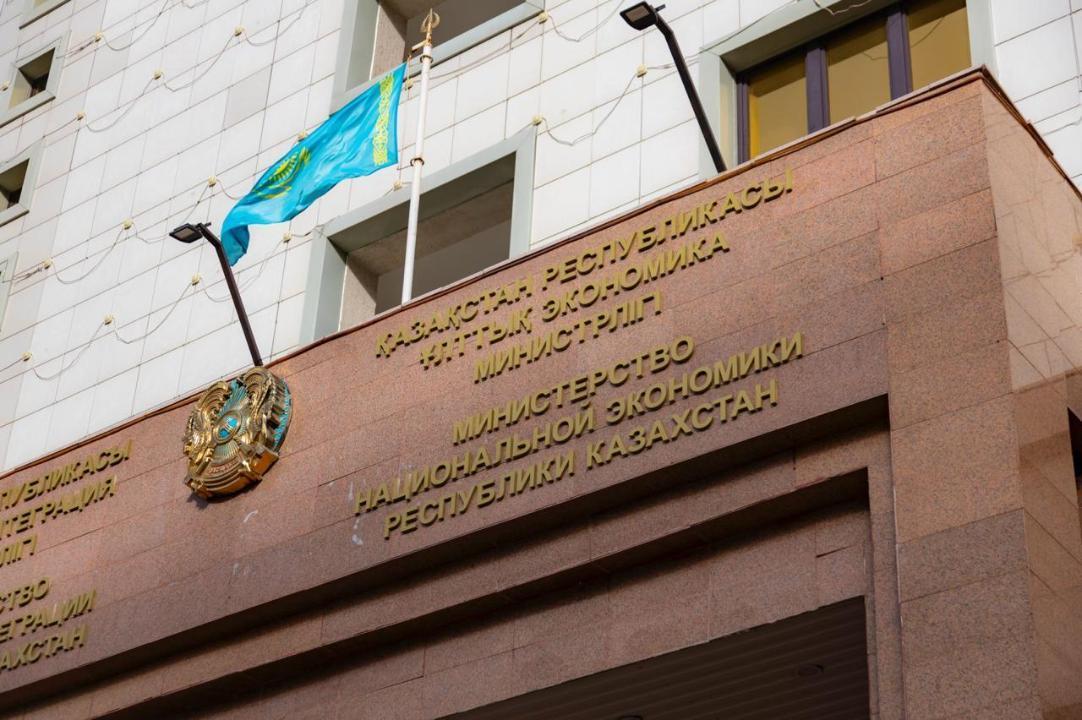MNE: Investment in the real sector is gaining momentum

Financing of the real sector of the economy is carried out through JSC «National Managing Holding «Baiterek». 8 trillion tenge is allocated for these purposes, which will be used for the implementation of priority industrial and infrastructure projects focused on sustainable economic growth.
The main volume of investment initiatives is concentrated in Банкthe Development Bank of Kazakhstan, a subsidiary of the holding. According to the results of the first four months of 2025, the gross domestic product of the Republic of Kazakhstan grew by 6%. The largest growth rateis demonstrated by the transport sector – 22,4%. As part of the development of transport infrastructure, in 2024, the Development Bank of Kazakhstan JSC started financing the first stage of repair of 5 thousand kilometers of highways. To date, work has been completed on the 1,2 thousand km section . In 2025, DBK plans to approve projects worth about 500 billion tenge aimed at developing road infrastructure. In particular, a large-scale second stage of reconstruction of 3 thousand km of roads across the country is being financed, which will ensure transport accessibility for more than 7 million residents of the regions. The implementation of the projects createsеabout 28 thousand jobs at the construction and maintenance stage. At the same time, international transport routes are being strengthened, which contributes to the expansion of foreign trade and an increase in the logistics potential of Kazakhstan.
In the MMC sector, which shows a 7,1% increase in the production index, DBK's financing volume will amount to 420 billion tenge. One of the key projects is the construction of a ferrosilicon production plant in Ekibastuz, which will become a highly automated production facility with a design capacity of 80 thousand tons per year. The products are export-oriented, which will allow Kazakhstan to strengthen its position among the largest suppliers of ferroalloys in the world. The plant forms an industrial cluster at the expense of related enterprises – a steel complex and a direct iron recovery factory, creating more than 520 permanent jobs and several dozen contracting companies.
DBK plans to finance a project to create new facilities for the production of hot briquetted iron with a volume of 2 million tons per year. The implementation of the project will increase the level of processing of raw materials, improve product quality, increase the technological level and export potential of the enterprise. The project will also create about 1 000 jobs and will make a significant contribution to the development of the metallurgical industry and the country's economy.
Another significant project is the construction of a hydrometallurgical plant in Pavlodar region, where autoclave oxidation technology will be applied. This will ensure a high depth of processing of ore concentrates produced at the Kyzyl and Varvarinskoye fields, according to international standards.
The chemical industry is developing at a faster pace, with an 11,2% increase in the production index. The volume of financing in 2025 will amount to 262 billion tenge. One of the key projects is the construction of a sodium cyanide production plant in Zhambyl region. This is an enterprise for the production of a strategically important reagent for gold mining, with a capacity of 25 thousand tons per year. Production fully covers domestic demand, reduces dependence on imports and generates export potential for Central Asian countries. Up to 200 jobs are being created at the project implementation stage, and about 100 at commissioning.
One of the largest chemical complexes in the region for the production of mineral fertilizers and industrial products with a combined capacity of over 1 million tons per year will also be implemented in Zhambyl region. The products will be exported to the USA, China, Turkey, the EU and Brazil. The project will provide employment for more than 1200 employees.
A complex for the production of potash salts will be built in the West Kazakhstan region. In addition to more than a thousand jobs, the project will have a multiplier effect – the construction of schools, hospitals, housing and road infrastructure in the region.
A sulfuric acid plant with a capacity of 800 thousand tons per year is being built in the Turkestan region, which will become a strategic supplier for the country's uranium industry. It is expected that tax revenues from its activities will reach 12 billion tenge annually. A unique project for the production of polyvinyl chloride and caustic soda is also being implemented in this region – the first PVC production in Kazakhstan withavolume of 120 thousand tons per year. It will completely close domestic demand and open export channels to the EAEU countries, China and the EU. The total number of jobs will exceed 1300 people. The forecast revenue is about 76,8 billion tenge, tax post-payments – 3,7 billion tenge per year.
Of particular importance is the project for the production of soda ash in Zhambyl region – this is the first production facility in the country with a capacity of 500 thousand tons per year, meeting the needs of the glass, metallurgical and petrochemical industries. Thanks to the implementation of the project, dependence on importsis completely eliminated, 355 jobs are created, and the technological base for further growth of the industry is formed.
The investment plans of the Development Bank of Kazakhstan for 2025 form a sustainable basis for economic growth through the development of transport links and the creation of new export-oriented industries with high added value that meet the requirements of maximizing production automation and the best available technologies. The estimated total gross value added for the entire duration of the projects will amount to 37,8 trillion tenge, of which 13,5 trillion tenge for projects starting their implementation in 2025. The overall effect of the projects is the development of the transport industry, the renewal of production facilities taking into account automation and digitalization, job creation, the launch of new raw material processing chains, reduced dependence on imports, and the growth of regional budgets due to tax revenues.